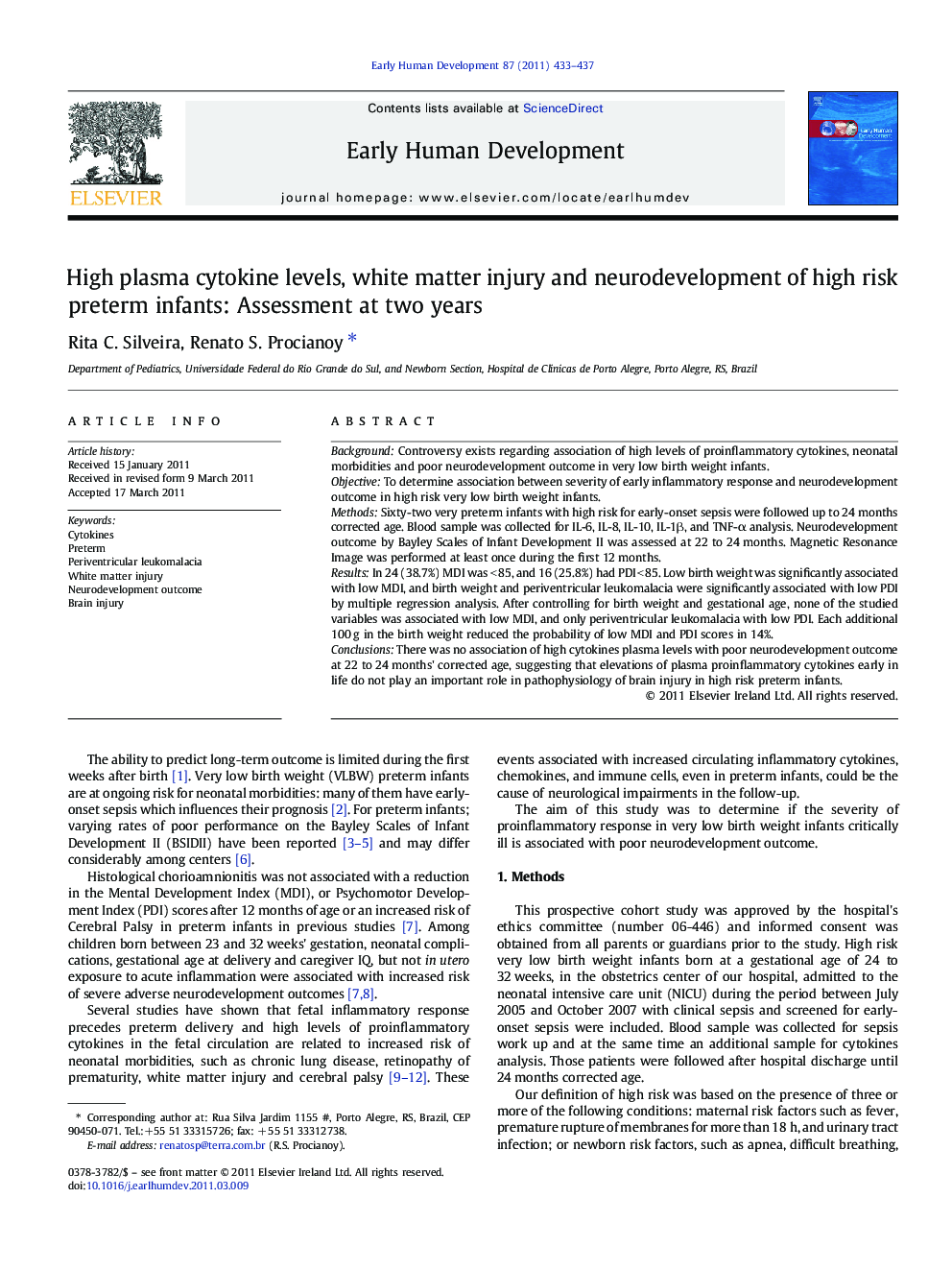| Article ID | Journal | Published Year | Pages | File Type |
|---|---|---|---|---|
| 3917528 | Early Human Development | 2011 | 5 Pages |
BackgroundControversy exists regarding association of high levels of proinflammatory cytokines, neonatal morbidities and poor neurodevelopment outcome in very low birth weight infants.ObjectiveTo determine association between severity of early inflammatory response and neurodevelopment outcome in high risk very low birth weight infants.MethodsSixty-two very preterm infants with high risk for early-onset sepsis were followed up to 24 months corrected age. Blood sample was collected for IL-6, IL-8, IL-10, IL-1β, and TNF-α analysis. Neurodevelopment outcome by Bayley Scales of Infant Development II was assessed at 22 to 24 months. Magnetic Resonance Image was performed at least once during the first 12 months.ResultsIn 24 (38.7%) MDI was < 85, and 16 (25.8%) had PDI < 85. Low birth weight was significantly associated with low MDI, and birth weight and periventricular leukomalacia were significantly associated with low PDI by multiple regression analysis. After controlling for birth weight and gestational age, none of the studied variables was associated with low MDI, and only periventricular leukomalacia with low PDI. Each additional 100 g in the birth weight reduced the probability of low MDI and PDI scores in 14%.ConclusionsThere was no association of high cytokines plasma levels with poor neurodevelopment outcome at 22 to 24 months' corrected age, suggesting that elevations of plasma proinflammatory cytokines early in life do not play an important role in pathophysiology of brain injury in high risk preterm infants.
